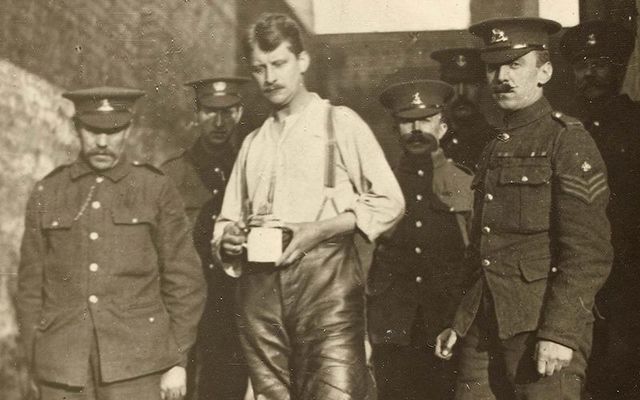It’s remarkable how many schoolteachers, poets, philosophers, and playwrights took up the cause of Irish freedom in the years before the Rising and through the Irish Civil War. Among the best and brightest of their generation, many were fighting not just for political independence from England, but also for something much deeper and harder to quantify—a complete metaphysical restoration of the Irish psyche after colonialism.
Thomas Ashe was an exemplar of this type of revolutionary idealist. With first-hand experience of the hardships of Irish rural life, it’s no surprise that he made common cause with men like his close friend, playwright Sean O’Casey, who was equally versed in the struggles of urban living.
Born in the Co Kerry Gaeltacht, Ashe had been a schoolteacher, a member of the Gaelic League, and a founding member of the Irish Volunteers. Watching his tenant farmer father endure threats from landlords and agents during his childhood left a profound impact on him. Additionally, the terrifying stories he heard from still-living witnesses about the suffering of the people during the Great Hunger further shaped his resolve.
Reading *I Die in a Good Cause*, originally published in 1970, offers a connection to the great national narrative that once electrified Ashe himself. The author, O Luing, was born only a few months before Ashe’s death in 1917, yet his book reminds us of the enduring power of Ashe’s legacy.
Thomas Ashe was only 32 when he died—after what was described as a botched force-feeding while on hunger strike in Mountjoy Prison. Ashe and his fellow revolutionary inmates insisted on being classified as political prisoners. Their hunger strikes were initiated in the hope that this demand would be recognized.
As is often the case in the story of the struggle for Irish independence, much of Ashe’s legacy today stems from the lingering questions about who he might have become and what role he could have played in the wider national story had his life not been so cruelly cut short.
There is a palpable reverence in this clear-eyed yet celebratory account. As long as there is an Ireland, this is a story that will not age—and a book that will never be out of print.
https://www.irishcentral.com/opinion/cahirodoherty/thomas-ashe



